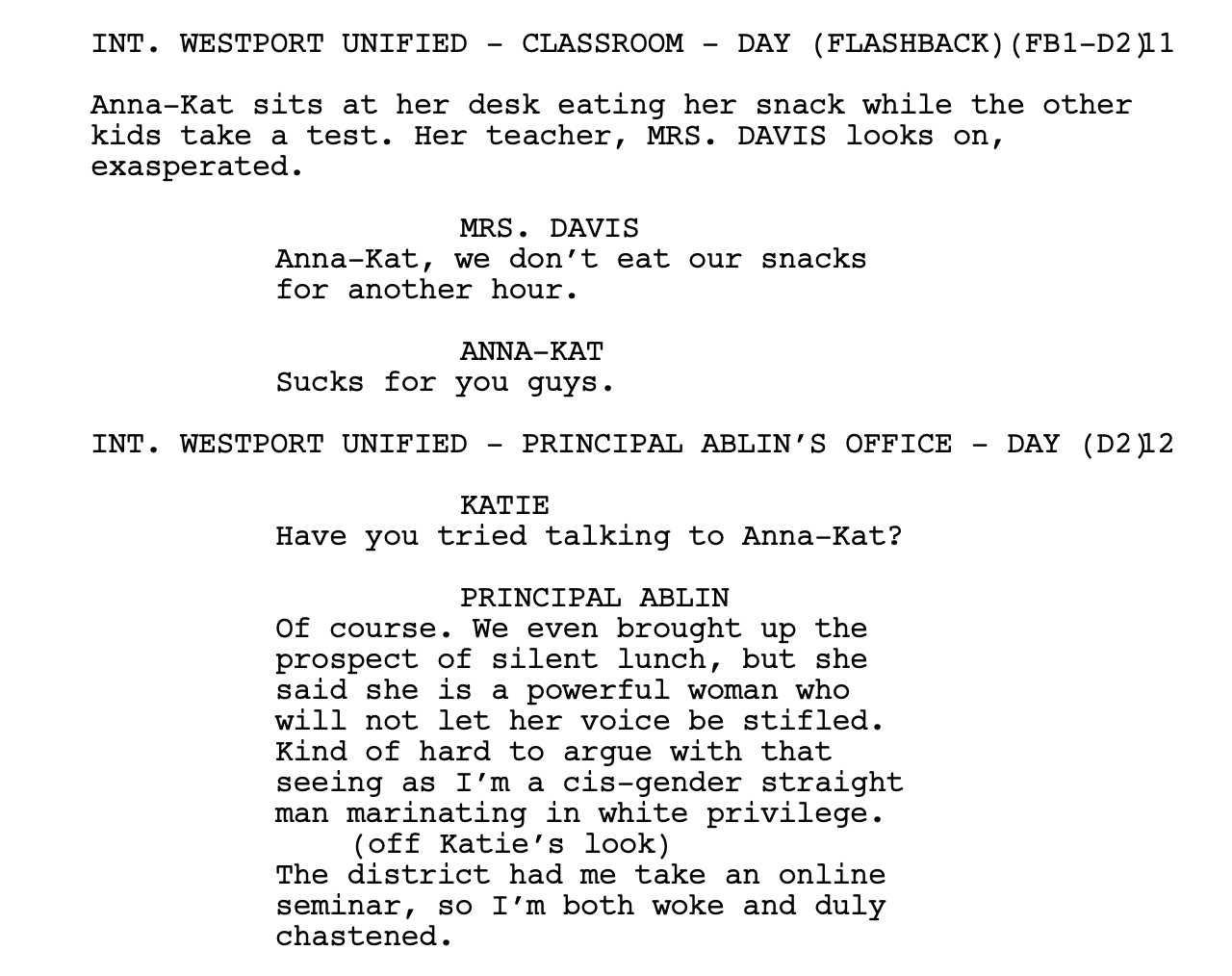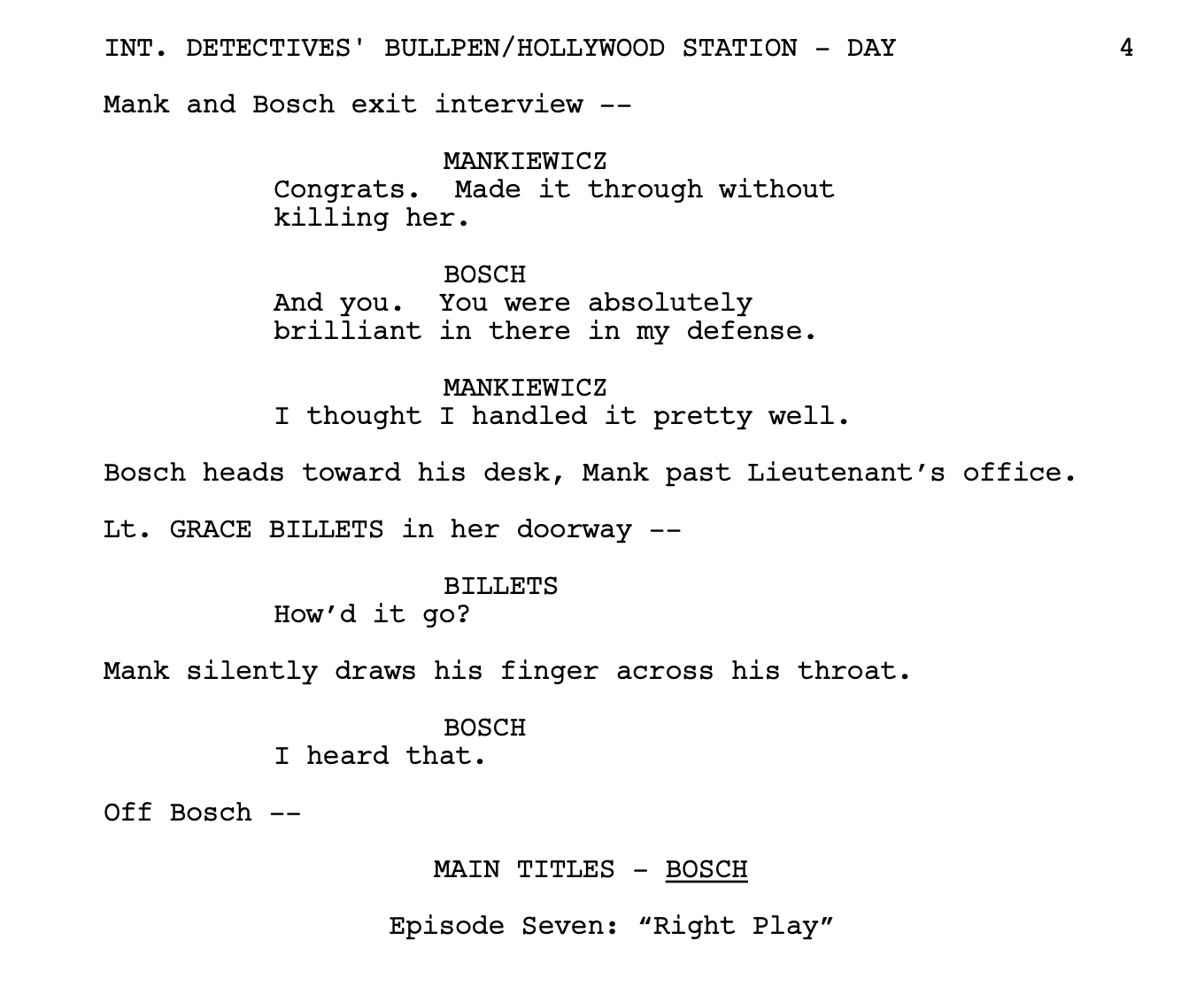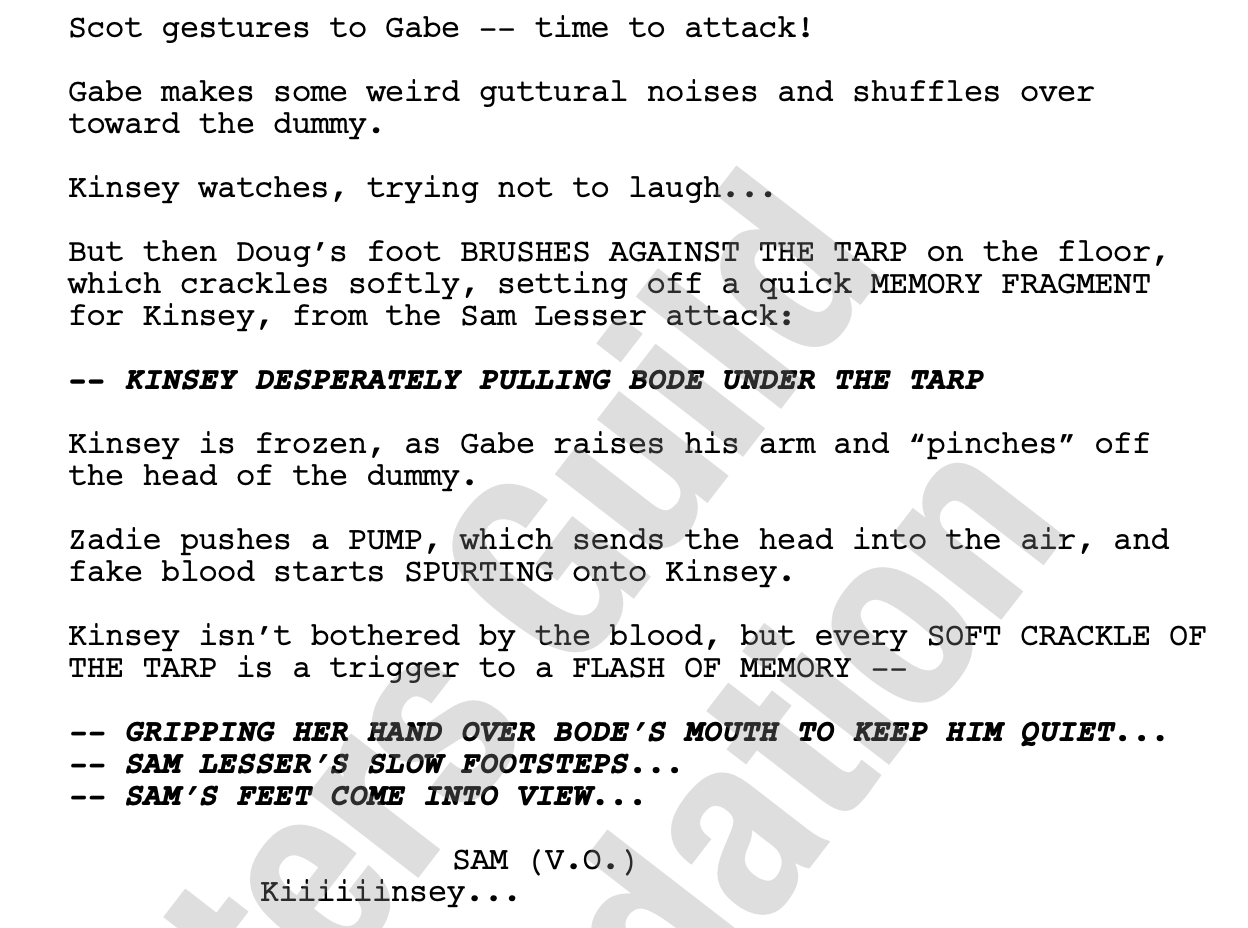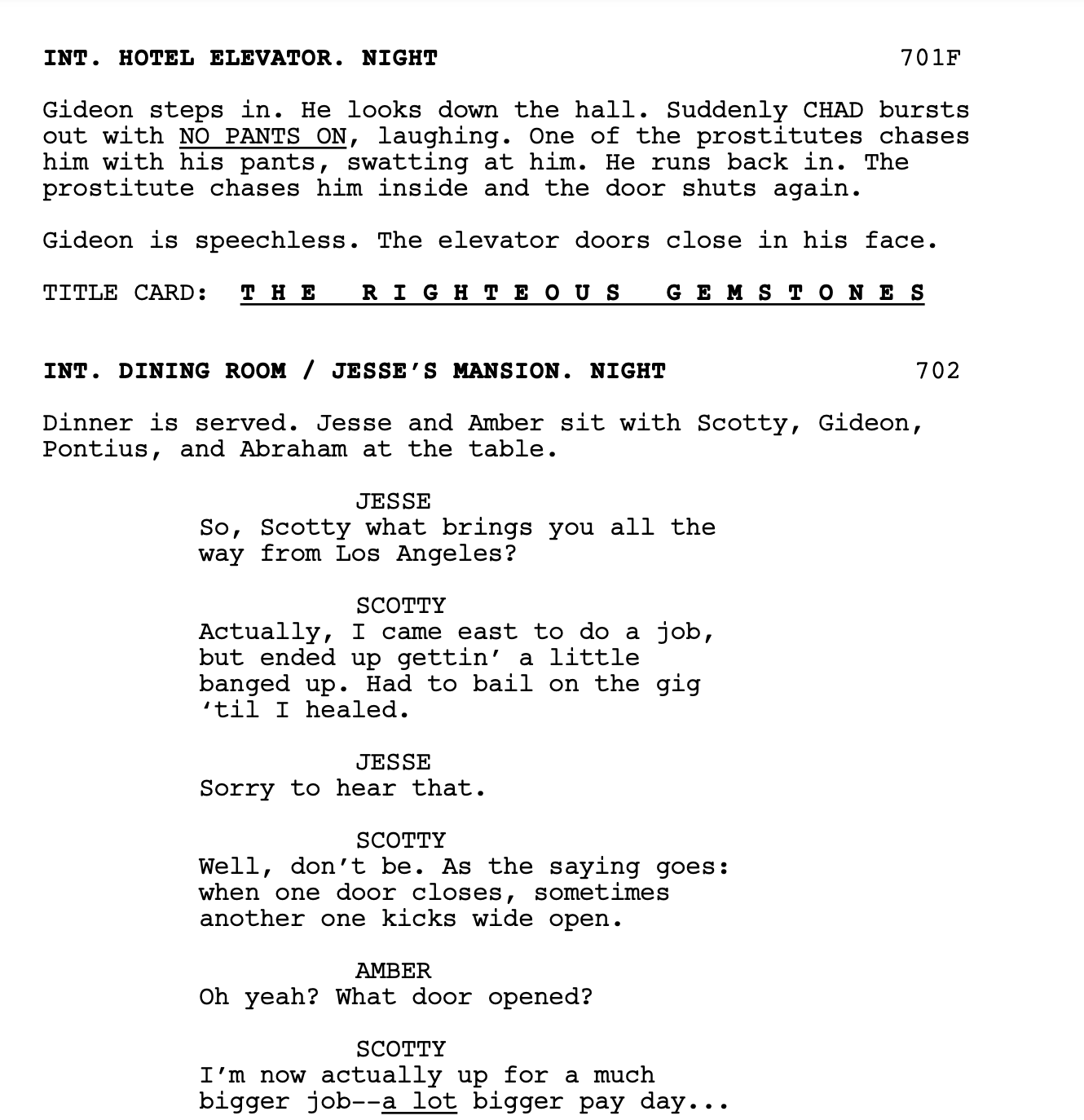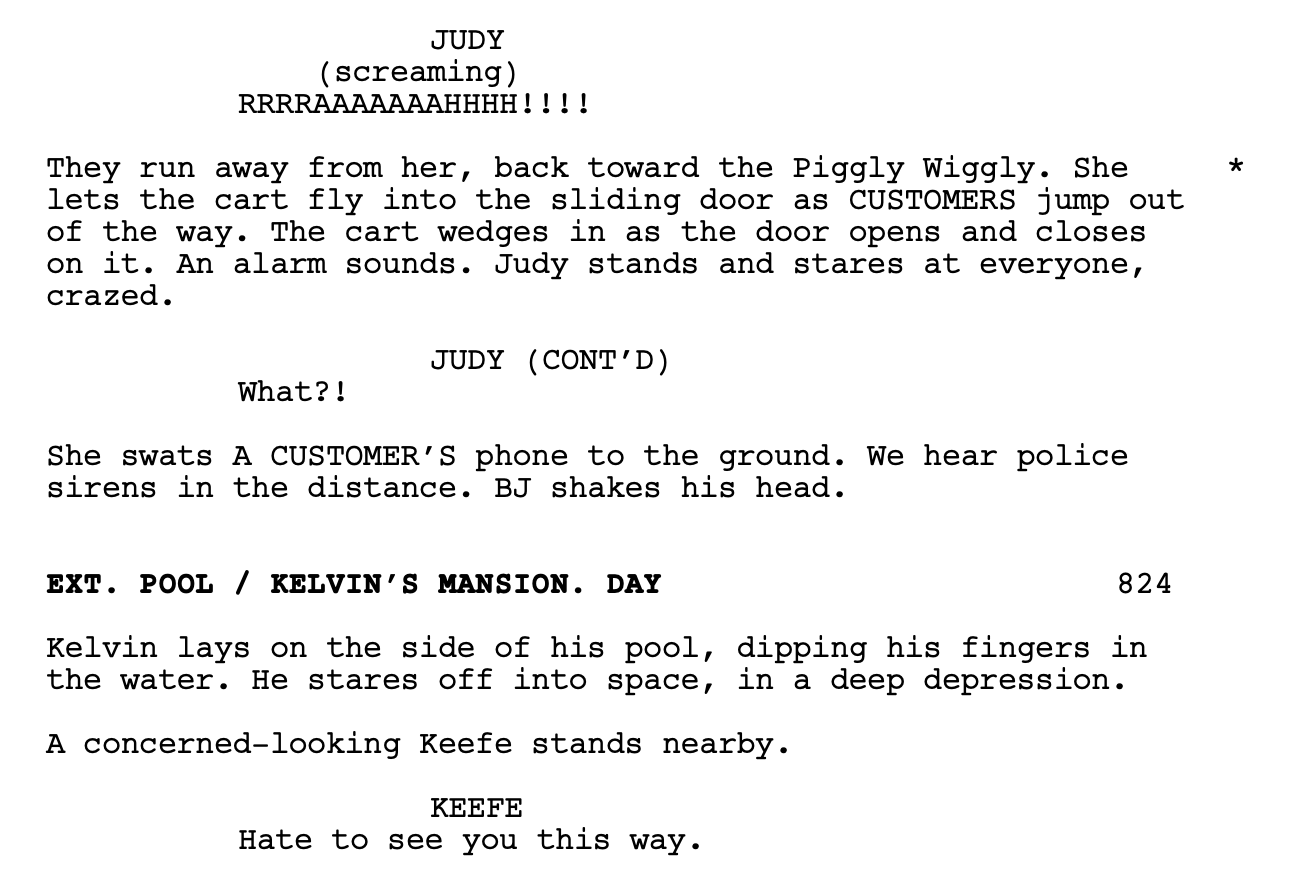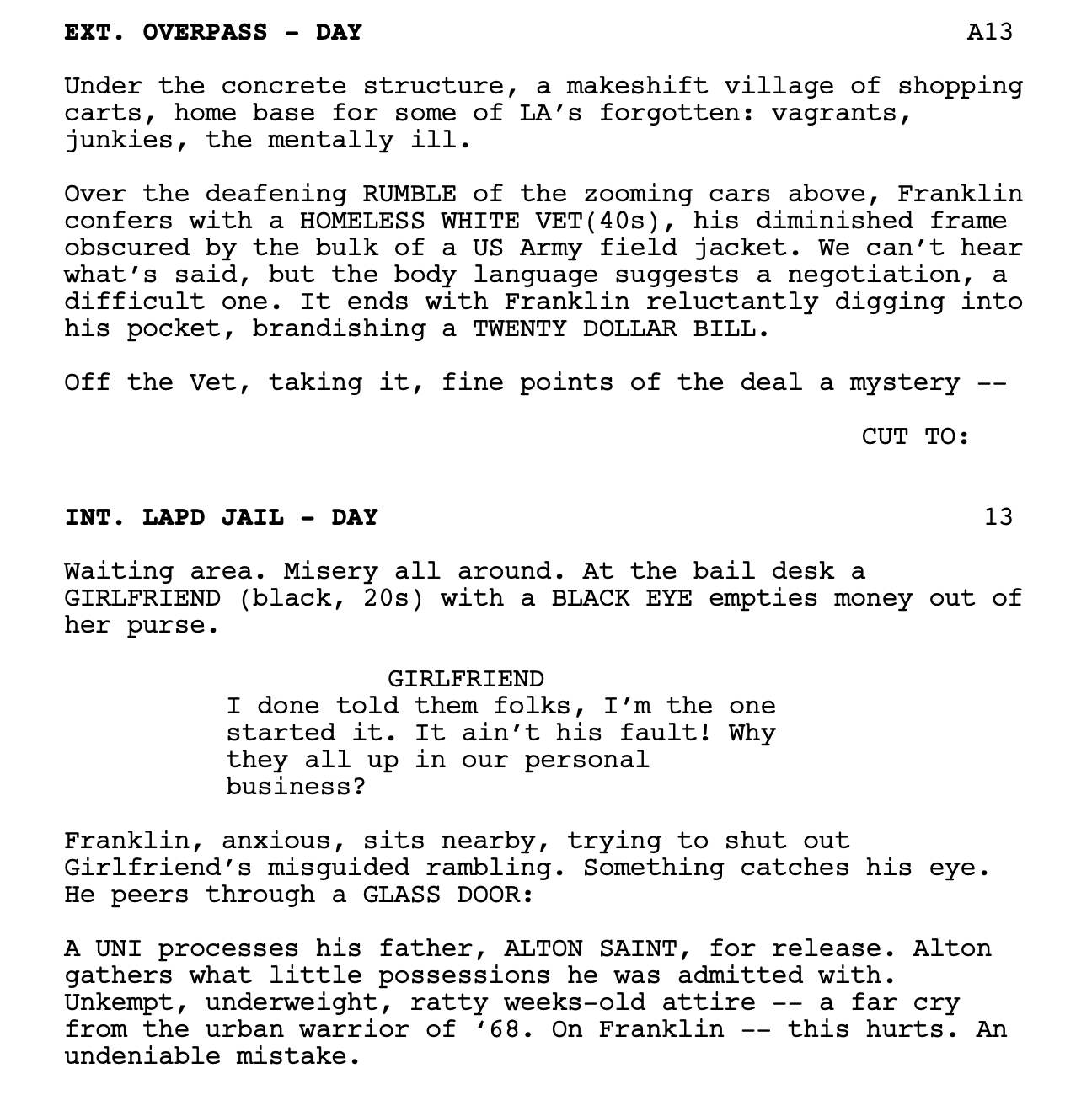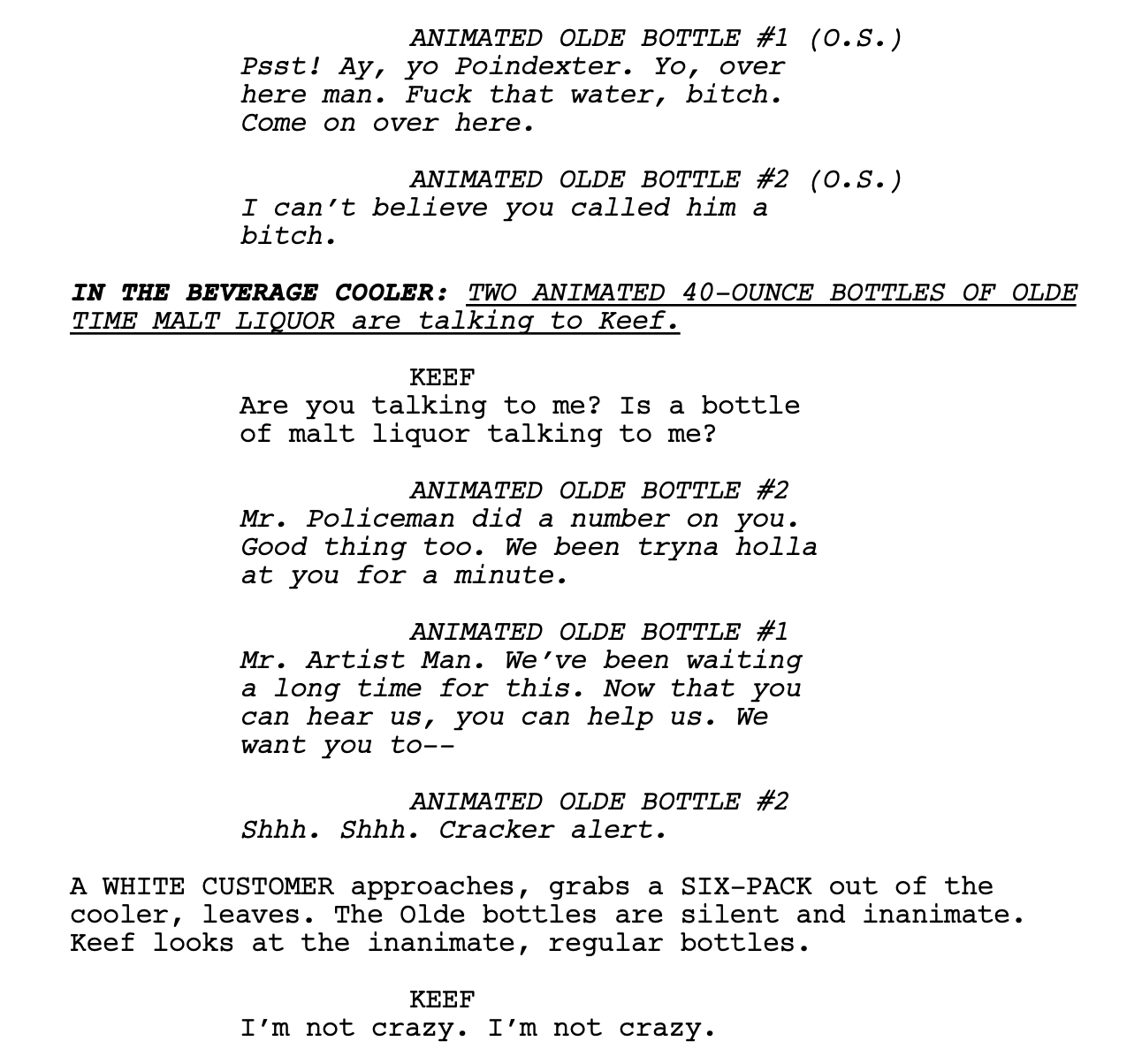FORMATTING YOUR SPEC SCRIPT WHILE SOCIAL DISTANCING: A PRIMER, PART 15
We’re back for another fun week of formatting pointers for anybody out there who might be working on a spec script! We hope these posts support you as you watch and break down the show you’re spec-ing. As always, we aren’t able to send out scripts in full as we are not the copyright holders, but we hope this primer jump-starts your research and writing. If you have further, more specific questions about the shows covered in this (or any other) formatting post, please e-mail us at library@wgfoundation.org and we can help clarify or provide more info.
AMERICAN HOUSEWIFE (ABC)
Average page count: 28-32 (aim for 30)
Average scene count: varies wildly 16-32
Broken into acts? Yes, 3 and a tag
Other things to consider:
Scripts are broken into a tight three acts. Act headings are formatted ACT ONE / END OF ACT ONE, centered, bolded and underlined. Act one begins on page one.
A few pages in, there is usually a main title cue. This is formatted: MAIN TITLES, centered, bolded and underlined. It serves as a kind of teaser for the episode.
Acts one and two are typically 8 to 12 pages in length. Act three is typically a bit shorter, clocking in at 6-9 pages.
Episodes occasionally contain flashbacks. These are formatted with a parenthetical in the scene heading as seen in the example below.
Description in American Housewife is sparse and functional. Most scripts have a lot of white space and dialogue.
Occasionally, a single word of dialogue will be underlined for emphasis.
If text is seen on screen, it’s often written out in all CAPITAL LETTERS and quotes.
Each episode ends with tag. The tag ranges from a half a page to 2 pages in length. See example below, which also shows how montages are formatted within the script.
BOSCH (Amazon)
Average page count: 49-52
Average scene count: varies, 52-68
Broken into acts? No
Other things to consider:
Scripts are not broken into acts, but contain a title cue within the first 2 to 7 pages or so. This acts as a sort of teaser. The title card is uniquely formatted in that it also contains the episode title. MAIN TITLE is centered in all caps, following by a dash, then BOSCH underlined. Underneath, Episode Seven (or whatever episode number it is in the particular season), followed by a colon, then the episode title in quotation marks.
Episodes often begin with a simple “FADE IN:” on the lefthand side. Episodes end with with FADE OUT or SCREEN GOES TO BLACK, etc. on the righthand side; then, END OF EPISODE TEN or whatever episode, centered and underlined.
Knowledge of Los Angeles is a plus when spec-ing this show because L.A. plays a role in the locations and the description within the scripts.
While scripts aren’t broken into acts, specifically, scenes often end with realizations, turning points and questions to keep things moving. Think: act outs.
LOCKE & KEY (Netflix)
Average page count: 45-56
Average scene count: varies — somewhere between 50-70 usually
Broken into acts? No
Other things to consider:
Scripts begin simply. They include LOCKE & KEY centered and underlined at the top, then on a new line: 105 (or whatever episode it is), then on another new line: Title of the episode in quotations.
Scripts are not broken into acts, but end: END OF EPISODE, centered, bolded, underlined.
Flashbacks are a big part of Locke & Key. Flashbacks are noted in the scene headings. Scene headings for flashbacks are in bold. All text in a flashback is in italics.
Sometimes CAPITALIZATION is used for emphasis in the description.
Text scene on screen is occasionally bolded.
Note in the example below how the writers format a flash of memory by bolding and italicizing the text.
THE RIGHTEOUS GEMSTONES (HBO)
Average page count: 28-38 (usually around 30)
Average scene count: mostly 36-40, but can go as high as 60
Broken into acts? No
Other things to consider:
Scene headings are bolded. Text on screen is bolded.
There’s usually a title card around page 2 or 3. This is formatted: TITLE CARD: T H E R I G H T E O U S G E M S T O N E S (bolded and underlined). This serves as an unofficial teaser.
When spec-ing, don’t worry about being funny in your descriptions. The dialogue and the scenarios are funny. The description is mostly plane and utilitarian. In most cases, there’s a lot of white space.
Significant actions in the scripts are often CAPITALIZED or underlined for emphasis.
SNOWFALL (FX)
Average page count: 42-46
Average scene count: 34-45
Broken into acts? Yes, 4 and a teaser
Other things to consider:
Scene headings are in bold.
Act headings are centered, bolded and underlined — ACT ONE / END OF ACT ONE… At the end of the fourth act, it’s END OF EPISODE.
Scripts also include a teaser, but the teaser is not noted on the first page. The script just starts. At the end of the teaser, it’s END OF TEASER, centered, bolded and underlined. There is no cue for the main title.
The teaser as well as acts one through three average about 7-11 pages in length. The fourth act is almost always shorter, usually around 4-6 pages wrapping everything up .
Significant props, actions and heightened emotions are sometimes CAPITALIZED in the text for emphasis. Occasionally in the description, a character’s thoughts are italicized.
Don’t be afraid to write rich, visual description. It’s all about the atmosphere and tone.
Flashbacks are written into the scene heading, e.g. INT. CHILDHOOD BEDROOM - FLASHBACK
The text in the flashbacks is in italics. See example below on how to oscillate between past and present.
When characters speak a different language, the translation is in a parenthetical underneath as in the example below.
WOKE (Hulu)
Average page count: 26-28
Average scene count: 12-26 (varies)
Broken into acts? Yes, 3 and a cold open
Other things to consider:
Scene headings are in bold.
Act headings are in bold, CAPITALIZED and underlined. Episodes begin: COLD OPEN / END OF COLD OPEN, then ACT ONE / END OF ACT ONE, etc.
The cold open and all three acts average about 6 to 10 pages more or less.
A knowledge of Bay Area culture and locations is a huge plus as this factors into the show and its writing.
The show features animation AND live action elements. All animated elements in the show are italicized in the script.
At the end of act three, scripts end with END OF EPISODE centered, bolded and underlined.
Until next time, happy writing!

